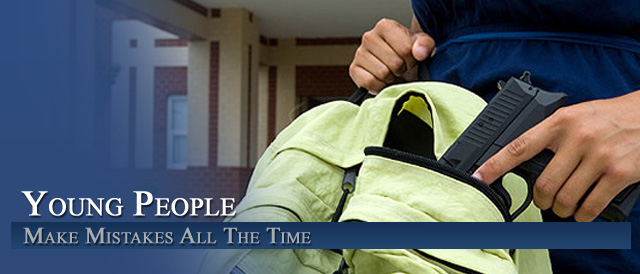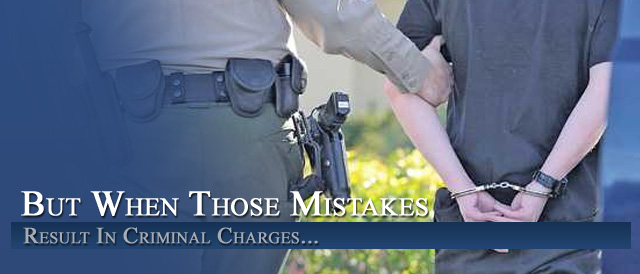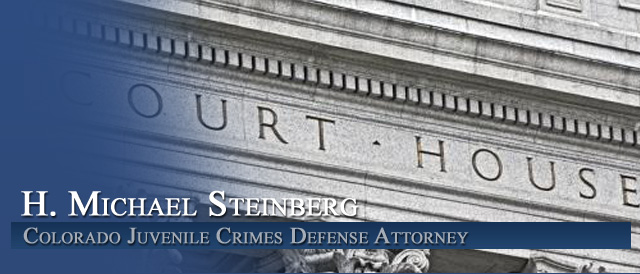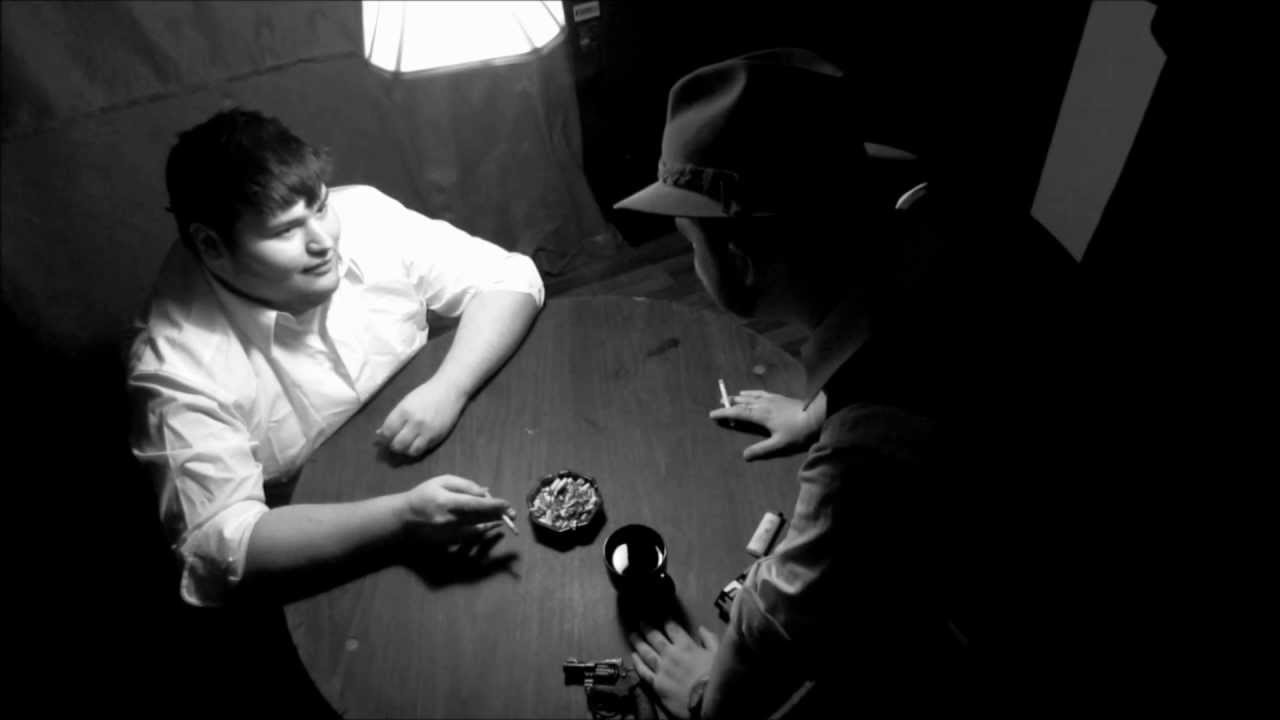




2016 Update – Questioning Juveniles In Colorado Criminal Investigations – Miranda Rights
By H. Michael Steinberg – Colorado Juvenile Crimes Criminal Defense Lawyer – Attorney
2016 Update – Questioning Juveniles In Colorado Criminal Investigations – Miranda Rights – It has been said that no matter how sophisticated a juvenile is – he or she cannot be compared to an adult. The United States Supreme Court and Colorado Supreme Court have recently recognized those important differences when it comes to the interrogation of children by the police.
While I have writen on the questioning of juveniles in Colorado criminal cases before – and written about the impact of the Miranda decision on juveniles that are in custody and questioned by adults in many contexts, this new law sheds light on this complex area.
After J.D.B. v. North Carolina – The Reasonable Child Standard to Juvenile Interrogations
In J.D.B. v. North Carolina, the United States Supreme Court, for the first time, held that a juvenile suspect’s age, when known or objectively apparent to an interrogating officer, is a factor to be considered in whether or not a Court will find that a the child is in custody for Miranda rights purposes.
Prior to J.D.B, the courts used a “one-size-fits-all reasonable person test” on whether, based on the totality of the circumstances, a reasonable child in the suspect’s position would have felt free to terminate the questioning and leave.
The new case takes into consideration the age of the “reasonable child” who is subjected to police questioning. The Court recognized that a young child will feel more pressured to submit to questioning when a reasonable adult would feel free to go. ” The Court saw no reason for police officers to ignore this commonsense reality during custodial interrogations.
J.D.B. has transformed the way courts and police officers must evaluate whether a juvenile is in custody for the of requiring Miranda warnings prior to police questioning. Before J.D.B., the U.S. Supreme Court had not expressly mandated consideration of a suspect’s age and even suggested that its inclusion in the Miranda analysis was improper due to the objective nature of the test.
Understanding The Basic Miranda Rule
The Miranda Rule governs the admissibility of a suspect’s confession under the Fifth and Fourteenth Amendments.
Prior to the Miranda decision, incriminating statements made as a result of custodial interrogation were analyzed solely on what is called the ‘due process voluntariness test.” The issue in every case using this due process model – where alleged incriminating statements are made during an interrogation – is whether a suspect’s will is overborne by coercive tactics employed by police during questioning.
The Courts evaluate this issue using what is known as the “totality of the circumstances” test. The totality of the circumstances test includes “both the characteristics of the accused and the details of the interrogation.” Unlike many other kinds of Constitutional analysis, the analysis is subjective in that it takes into consideration an individual’s “actual mind set” in evaluating whether his or her confession was a “product of coercion.”
The Miranda rule was built on the voluntariness test specifically because of concerns that the inherently coercive nature of custodial interrogation “blurs the line between voluntary and involuntary statements.”
So What Exactly Is the “Miranda Rule of Law?”
Contrary to popular belief – even to this day – Miranda Rights need only be given to a person during questioning IF that person is found – from the totality of the circumstances – to be in custody at the time of questioning.
Law enforcement officers may not question a person who:
“has been taken into custody or otherwise deprived of his freedom of action in any significant way” unless they first provide certain Fifth Amendment warnings. … that the person has a right to remain silent, that any statement the person makes may be used against him or her at trial, and that the person has the right to an attorney, either appointed or retained.
The rule is this – ANY statements made during custodial interrogation are presumed to be involuntary and inadmissible at trial unless the state shows that Miranda warnings were given and that the person “knowingly and intelligently” waived his or her rights.
Miranda warnings are therefore “triggered” if the objective circumstances of the interrogation establish that the person’s freedom of movement was restricted in such a way as to render him or her “in custody.”
The analysis requires two inquiries:
1. What were the circumstances surrounding the interrogation; and
2. Given those circumstances, would a reasonable person have felt he or she was at liberty to terminate the interrogation and leave.
Unlike the voluntariness test (above) the Miranda analysis is objective, and not subjective and involves no consideration of the particular suspect’s state of mind. When a test is objective in nature the law asks:
whether a reasonable person would have believed that he or she had been placed under a formal arrest or restraint on freedom of movement of the degree associated with formal arrest.
The easiest case is the formal arrest of a suspect followed by the questioning of that suspect. Placing a person under formal arrest triggers the requirement of Miranda warnings. The harder case is when “custody” is not clear from the facts.
J.D.B. v. North Carolina – In Juvenile Cases “Age” Becomes A Factor
Put in it’s simplest form – the U.S. Supreme Court, in J.D.B. held that in juvenile criminal investigations, “a child’s age properly informs the Miranda custody analysis.”
The Court found the obvious – childhood is an objective factor because it yields “commonsense conclusions about behavior and perception” that apply universally to children as a class, and these conclusions “are self-evident to anyone who was a child once himself, including any police officer or judge.”
Thus the “reasonable child” standard is born. Under the reasonable child standard, courts and police officers must account for a juvenile’s age, if the juvenile’s age was known or “objectively apparent” to the interrogating officer. J.D.B..
The J.D.B. Reasonable Child Standard
Under the reasonable child standard:
(1) Age is one of many factors in the totality of circumstances but may not be a “determinative, or even a significant, factor in every case” and
(2) that the coercive effect of other circumstances of an interrogation may be heightened when the suspect is a minor.
A Juvenile’s Age Is One Factor in the Totality of the Circumstances
The Meaning Of J.D.B – A Juvenile’s Age Changes How Other Objective Factors Are Weighed in the Analysis Of Custody
While age is a critically important factor after of J.D.B., many factors are necessarily included in the analysis. These factors include, but are not limited to:
(1) the location or physical surroundings of the interrogation,
(2) whether a parent or other trusted adult was present,
(3) the presence of other adult participants,
(4) whether the juvenile was expressly told that he or she was free to leave,
(5) whether the juvenile voluntarily submitted to the interview,
(6) the duration of the interview, and
(7) the nature of the questioning.
Other Factors may include:
(1) the nature of the interrogator,
(2) the time of the interrogation,
(3) the degree to which suspicion had been focused on the juvenile,
(4) whether the juvenile was handcuffed or otherwise physically restrained,
(5) the nature of any security around the juvenile,
(6) whether the juvenile was searched, and
(7) whether the juvenile was transported in a police car.
No one factor is controlling.
Colorado Applies J.D.B. And Finds Age Is Not A Controlling Factor – People v. N.A.S., 329 P.3d 285 (2014)
In the Colorado case of N.A.S.
1. A 13-year-old boy was questioned by an officer at school after female students had complained that N.A.S. had touched them inappropriately.
2. The school principal escorted N.A.S. to the assistant principal’s officer where his father and uncle were waiting.
3. The police officer, in full uniform, entered the room and shut the door.
4. N.A.S. was read his Miranda rights and both N.A.S. and his father indicated that they understood N.A.S.’s rights and were willing to speak without an attorney.
5. The questioning lasted about 5-10 minutes, during which N.A.S. told the officer that he did not remember any of the alleged incidents. N.A.S. was subsequently charged and moved to suppress the statements he made to the officer.
The Application Of J.D.B
The Court held that N.A.S. was not in custody. In the juvenile context, applying the same factors that apply to adults – but adding in the factor of age – here age was not dispositive and was weighed alongside other relevant factors.
Why Age Did Not Play A Factor – The Reasonable Child Factors Applied
- Interview took place on school ground rather than at a law enforcement facility.
- N.A.S. was summoned by the principal, not the officer.
- Non-law enforcement personnel were allowed to remain in the office.
- Officer kept a calm tone and did not issue any directions or touch N.A.S.
- The interrogation was short – only 5 to 10 minutes.
- The fact that N.A.S. was 13: The juvenile’s age – 13 – did not change the fact that a reasonable 13 year old would not have felt deprived of freedom to act.
- The Officer spoke calmly and provided a Miranda warning.
2016 Update – Questioning Juveniles In Colorado Criminal Investigations – Miranda Rights
If you found any of the information I have provided on this web page article helpful please click my Plus+1 or the Share buttons for Twitter and Facebook below so that others may also find it.
The reader is admonished that Colorado criminal law, like criminal law in every state and at the Federal level, changes constantly. The article appearing above was accurate at the time it was drafted but it cannot account for changes occurring after it was uploaded.
If, after reading this article, you have questions about your case and would like to consider retaining our law firm, we invite you to contact us at the Steinberg Colorado Criminal Defense Law Firm – 303-627-7777.
Never stop fighting – never stop believing in yourself and your right to due process of law. You will not be alone in court, H. Michael will be at your side every step of the way – advocating for justice and the best possible result in your case. H. Michael Steinberg is passionate about criminal defense. His extensive knowledge and experience of Colorado Criminal Law gives him the edge you need to properly handle your case
 ABOUT THE AUTHOR: H. Michael Steinberg – Email The Author at [email protected] – A Denver Colorado Criminal Defense Lawyer – or call his office at 303-627-7777 during business hours – or call his cell if you cannot wait and need his immediate assistance – please call 720-220-2277.
ABOUT THE AUTHOR: H. Michael Steinberg – Email The Author at [email protected] – A Denver Colorado Criminal Defense Lawyer – or call his office at 303-627-7777 during business hours – or call his cell if you cannot wait and need his immediate assistance – please call 720-220-2277.
“A good criminal defense lawyer is someone who devotes themselves to their client’s case from beginning to end, always realizing that this case is the most important thing in that client’s life.”
You should be careful to make a responsible choice in selecting a Colorado Criminal Defense Lawyer. We encourage you to “vet” our firm. Over the last 30 plus years – by focusing ONLY on Colorado criminal law – H. Michael has had the necessary time to commit to the task of constantly updating himself on nearly every area of criminal law, to include Colorado criminal law and procedure and trial and courtroom practice. H. Michael works hard to get his clients the best possible results in and out of the courtroom. He has written, and continues to write, extensively on Colorado criminal law and he hopes this article helps you in some small way – 2016 Update – Questioning Juveniles In Colorado Criminal Investigations – Miranda Rights.

Other Articles of Interest:
- In Colorado – Can The Police Question My Child Without My Permission?
- Colorado Criminal Law – Did My Child Just Confess At The School?
- Juvenile Probation Officers – Powers and Duties 19-2-926
- Colorado Criminal Juvenile Law – Why Using Facebook Can Be A Very Dangerous Thing To Do
- If Your Child Is Arrested In A Colorado Juvenile Criminal Case – Some Tips For Parents From A Colorado Juvenile Criminal Defense Lawyer













